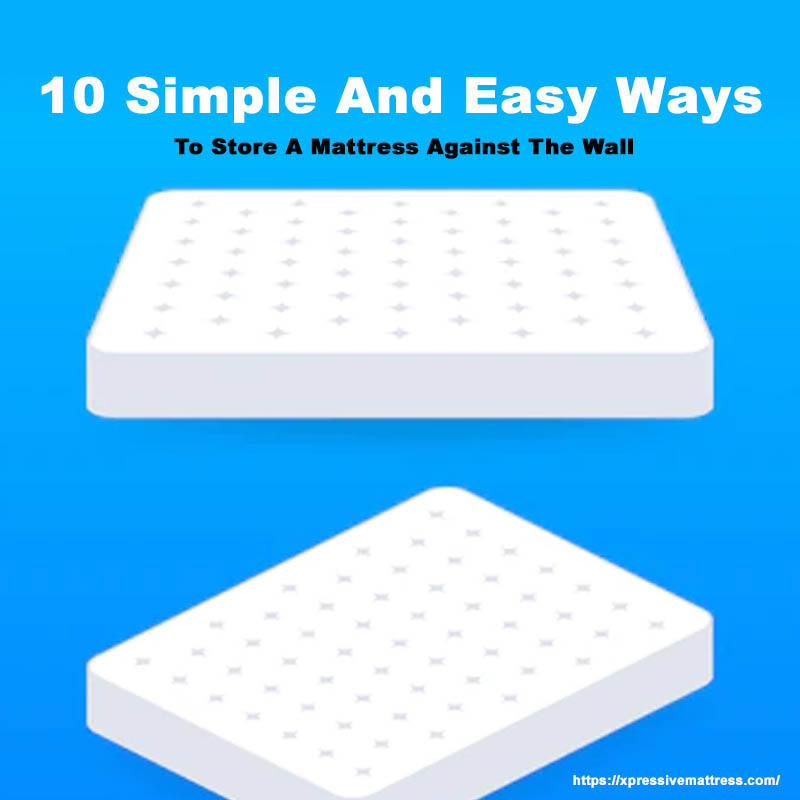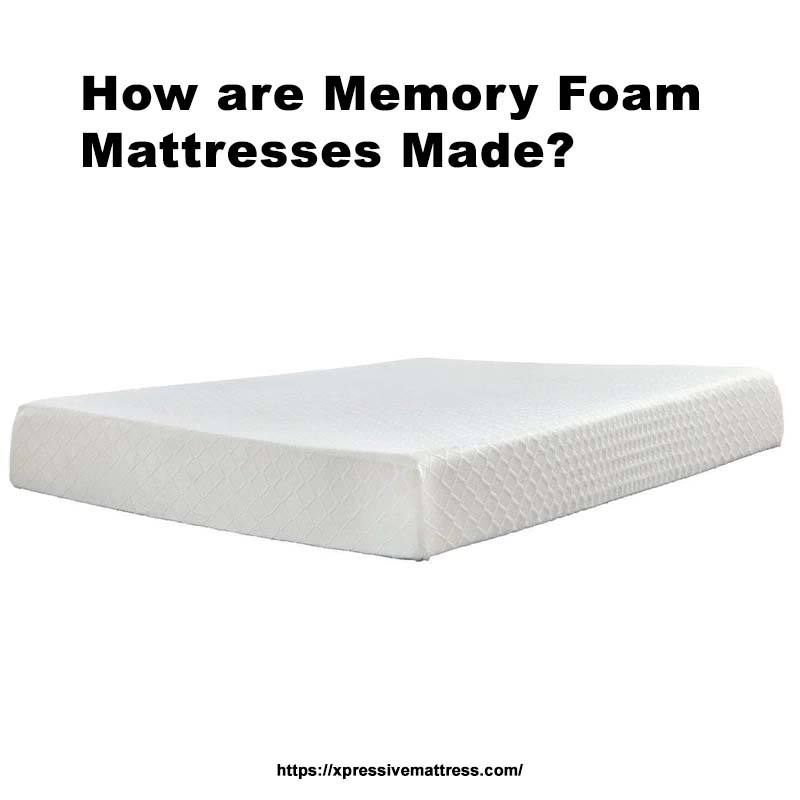Whitening your mattress is a great way to make it look and feel like new again!
It’s an easy process that can be done in just a few steps.
Here are some tips on whitening your mattress:
- Vacuum the bed’s surface with an upholstery attachment; this will remove any dirt or dust particles deep within its fibers.
- Use baking soda mixed with water as a natural cleaning solution – spray onto affected areas and sit for 15 minutes before wiping away excess moisture using clean cloths.
- Consider spot-treating stains by applying hydrogen peroxide directly onto them (test first).
- Air out the room after completing these steps so that all odors dissipate quickly – open windows or turn on fans if needed!
Taking time to freshen up our mattresses every now and then helps us sleep better at night, knowing we’re sleeping in freshness each day!
What Are The Possible Causes Of A Yellowing Mattress?
A yellowing mattress can be caused by a variety of factors.
These include:
- Sweat and body oils from sleeping on the mattress – Over time, sweat and other bodily fluids that are absorbed into the fabric or foam layers of your bed will cause it to discolor;
- Sunlight exposure – Prolonged sun exposure causes fabrics to fade over time;
- Poor air circulation in the bedroom – If there is not enough airflow around your bed, moisture may build up inside, causing mold growth which leads to staining;
- Cleaning products used for cleaning mattresses – Some cleaners contain harsh chemicals that can damage materials like cotton fibers, making them stained or discolored. Additionally, some detergents leave behind residue when they dry out, leaving an unsightly stain on the surface of your bedding.
- Pets – Pet fur and dander left behind after snuggling with our furry friends also contribute towards yellow stains appearing on mattresses and pet urine if accidents occur while you’re away at work during day hours.
- Age – As beds age, their material breaks down more easily, allowing dirt particles such as dust mites to accumulate faster than usual, resulting in dark spots forming all over their surface area.
All these possible causes should be considered before attempting any treatment for a yellowing mattress!
How Can You Identify The Best Method To Whiten Your Mattress?
Identifying the best method to whiten your mattress can be a challenge.
Here are some tips that will help you make an informed decision:
- Start by vacuuming it thoroughly, using attachments if necessary. This removes dirt and dust particles that could otherwise cause discoloration.
- Next, use baking soda or borax powder on the surface of the mattress. These natural ingredients act as mild abrasives and absorb odors too!
- If there is any visible staining from spills or other sources, try spot-treating with hydrogen peroxide before applying either baking soda/borax mixture. This should lighten up most stains without damaging fabric fibers in the process.
- Finally, let everything sit for at least 24 hours so that all cleaning agents have time to work their magic. Then vacuum again once done!
Consider investing in a special UV light device designed for mattresses (these usually come equipped with fans).
The ultraviolet rays of such devices kill bacteria. While simultaneously brightening fabrics back up their original coloration over several treatments depending on the severity situation at hand.
Good luck finding the perfect solution yourself today!
Can You Use Natural Ingredients To Whiten Your Mattress?
Yes, you can use natural ingredients to whiten your mattress!
Here are some examples of what you could try: baking soda and lemon juice, vinegar, and water, hydrogen peroxide.
All these items have properties that help remove stains from mattresses without the need for harsh chemicals or bleaches.
Baking soda is a great deodorizer, while lemon juice helps break down dirt particles on fabric surfaces like mattresses.
Vinegar has mild disinfectant qualities, making it ideal for cleaning fabrics and removing odors.
At the same time, hydrogen peroxide breaks up tough stains with its oxidizing power.
When using any of these products, it’s important to remember not to over-saturate the mattress.
Just enough so that it covers all areas evenly but doesn’t soak through too much into the padding underneath!
Finally, always test out an inconspicuous area before applying anything directly onto your bedding in case of adverse reactions between certain materials used in construction (such as foam).
With this simple method, you’ll soon have a clean white mattress again – no bleach required!
How Can You Safely Use Chemical Whitening Products On Your Mattress?
Using chemical whitening products on your mattress can be a great way to keep it looking fresh and clean.
However, there are some important safety tips you should follow when using these types of products:
- Read the instructions carefully before use – ensure the product is suitable for mattresses and check any warnings or cautions listed. Wear protective clothing such as gloves, goggles, and an appropriate mask.
- Test in a small area first – this will help ensure that no damage occurs during application.
- Apply evenly across the surface with a brush or cloth, following the manufacturer’s directions exactly.
- Allow adequate drying time between applications if necessary (usually 24 hours).
- Vacuum thoroughly after treatment to remove all traces of chemicals from fabric fibers.
- Keep children away while applying/drying process takes place, and store unused products safely out of reach afterward!
Following these steps will help ensure safe usage so you can enjoy having bright white sheets again without worrying about the potential harm caused by improper handling!
What Are The Best Techniques For Whitening Mattress Stains?
The best techniques for whitening mattress stains depend on the type of stain.
For example, if you have a urine or sweat stain, it’s important to use an enzyme cleaner that breaks down and removes proteins from the fabric fibers.
Hydrogen peroxide can be a safe alternative to bleach if your mattress is stained with blood or other bodily fluids.
However, ensure not to over-saturate the area so as not to damage any fabrics!
Additionally:
- Use baking soda – Sprinkle some baking soda onto affected areas before vacuuming up after 15 minutes. This helps absorb odors and lighten discoloration caused by spills/stains.
- Spot clean using mild detergent – Mix one part water with two parts liquid laundry detergent to create a sudsy solution, then apply directly onto the area (s). Gently scrub away dirt particles until they are removed. Avoid rubbing too hard, which could cause further staining. Finally, rinse off the residue left behind with cold water afterward, drying thoroughly later.
- Apply white vinegar – Dilute equal amounts of white vinegar and warm water into a spray bottle, then spritz generously across the entire surface. Being careful to avoid oversaturating the material itself.
How Can You Prevent Your Mattress From Yellowing In The Future?
To prevent your mattress from yellowing in the future, there are a few steps you can take:
- Vacuum regularly – This will help remove dust and dirt that may cause discoloration.
- Use a protective cover or pad – These items provide an extra layer of protection against spills and stains, which could lead to yellowing if not cleaned up quickly enough.
- Avoid direct sunlight exposure – Sunlight is one of the main causes of mattresses becoming discolored, so try to keep it away as much as possible by using curtains or blinds when necessary during daylight hours (especially on hot days).
- Rotate/flip your mattress every 6 months – Doing this helps evenly distribute wear and tear across all areas of the bedding surface, reducing any potential damage caused by long periods without movement, such as sagging spots where body oils accumulate more easily leading to staining and fading issues down the line!
- Clean with mild detergent only – Stronger cleaning agents like bleach should be avoided at all costs. Since they’ll likely strip away color pigments faster than desired, resulting in premature aging effects. That includes yellowness appearing sooner rather than later.
What Are The Signs That Your Mattress Whitening Efforts Have Been Successful?
Regarding mattress whitening, there are a few signs that your efforts have been successful.
- You should notice an overall brighter appearance of the fabric on your mattress.
- Any discoloration or staining will be significantly reduced and may even disappear completely in some cases.
- Suppose you’ve used a deodorizing product during the process. In that case, this should also help reduce odors from sweat and other sources, leaving behind only freshness!
- When running your hand over the surface of the bedding material after cleaning. You shouldn’t feel any grittiness which could indicate dirt particles are still present within its fibers.
In conclusion: If all these criteria are met, congratulations –your hard work has paid off!
Your mattress is now looking as good (if not better) than new again, with no visible stains or unpleasant smells lingering around anymore.
Conclusion: How To Whiten Your Mattress?
Whitening your mattress is a great way to keep it looking and feeling fresh.
It’s easy, affordable, and can be done in just a few simple steps!
- You’ll need to vacuum the surface of the mattress with an upholstery attachment or brush; this will help remove any dirt or debris that may have accumulated over time.
- Use baking soda mixed with water (or vinegar) as a natural cleaning solution for stains on fabric mattresses – apply directly onto affected areas, then sit before wiping away excess moisture.
- Air out your freshly cleaned bedding by leaving windows open during sunny days. So sunlight helps naturally bleach fabrics back to their original coloration without harsh chemicals!
In conclusion, whitening your mattress doesn’t take much effort. Still, it yields big results in keeping our beds clean and comfortable.
That ensures we get quality rest every night, leading us to live healthier lives overall!



